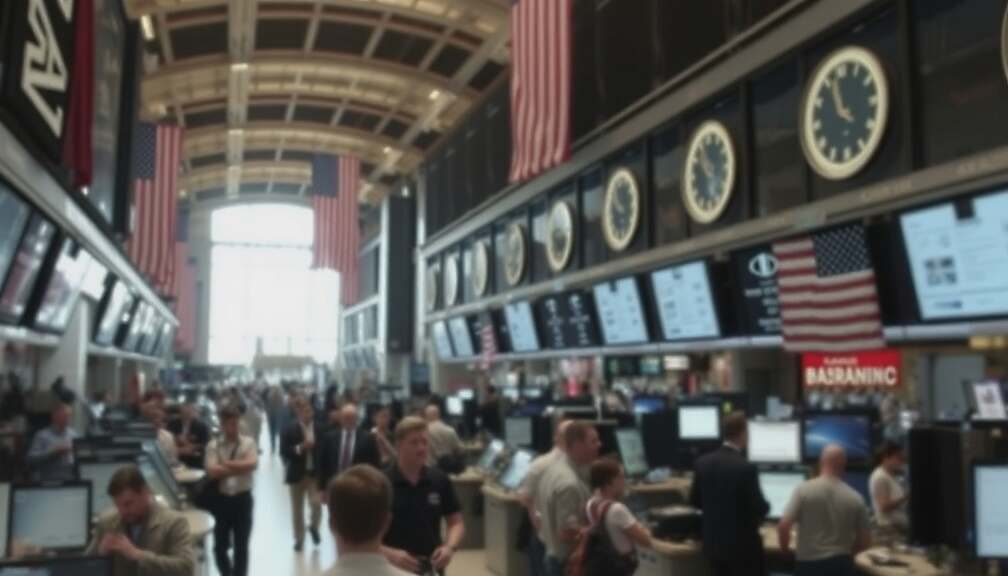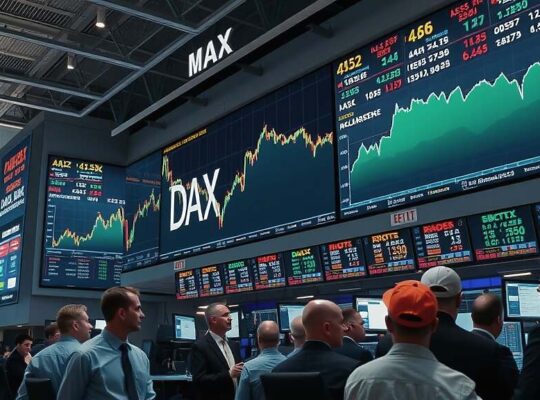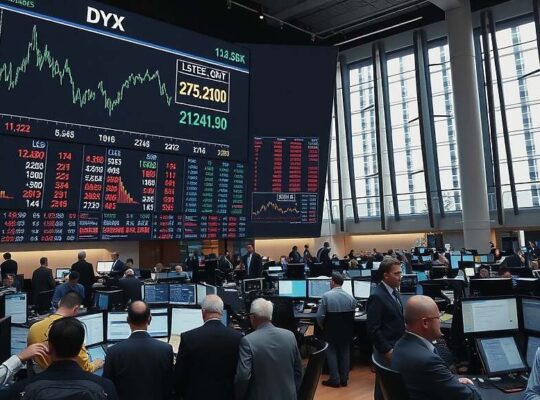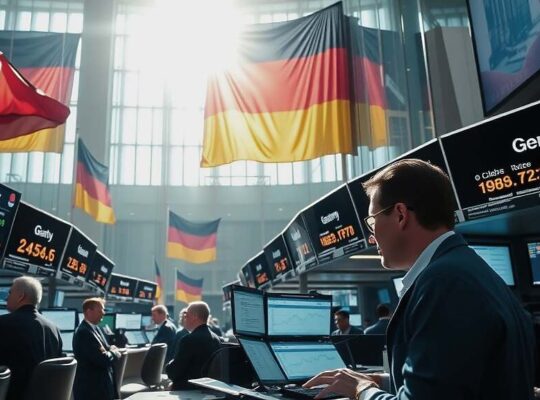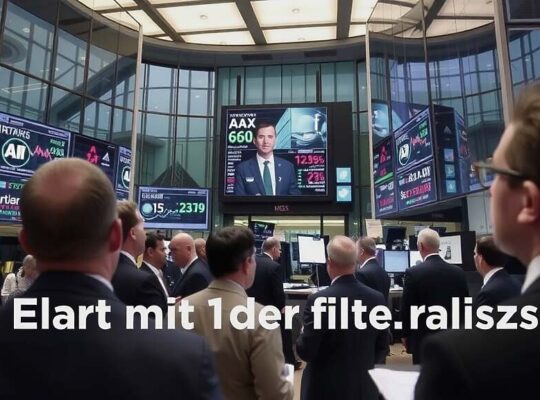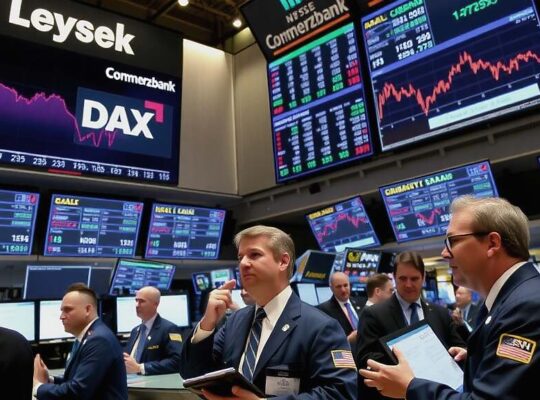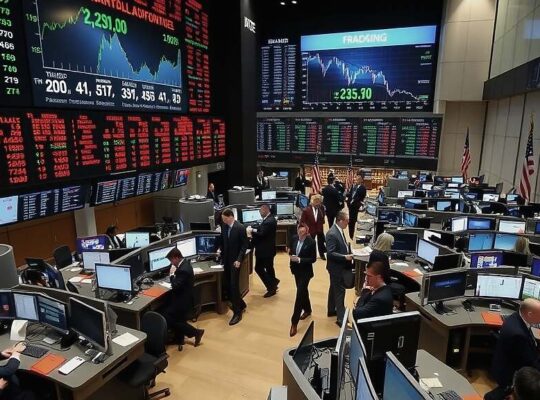The German stock market opened Thursday with a dip, reflecting ongoing volatility and a lack of clear direction amongst investors. The DAX index, a key benchmark for German equities, was calculated at approximately 23,990 points around 9:30 AM, representing a 0.2% decline from the previous day’s closing level. While Zalando, Deutsche Post and Adidas saw gains, Commerzbank, Siemens Energy and Heidelberg Materials suffered losses, illustrating a fractured market sentiment.
Analysts attribute this instability to a pervasive sense of uncertainty, compounded by a recent pattern of alternating positive and negative trading days. Over the past 20 trading sessions, the DAX has experienced an even split – ten days positive, ten negative – suggesting a continued struggle to establish a sustained upward trend. As Thomas Altmann of QC Partners observed, “The stock market remains a volatile up and down”. This behaviour reinforces a scenario where setbacks are quickly absorbed, yet recoveries are equally swiftly sold off, further hindering a commitment to any single direction.
A deeper examination of individual DAX-listed companies reveals a similar lack of clarity. Early results from the second half of the year demonstrate a near-even split, with 20 of the companies that have been present in the index displaying negative performance and 22 demonstrating positive returns. This parity underscores a fundamental question: is the market bracing for a sustained period of sideways movement, or does this represent a prelude to a more decisive shift?
The Euro also presented a nuanced picture, strengthening slightly to $1.1510, with the dollar subsequently trading at €0.8688. Concurrently, the price of Brent crude oil experienced a minor decline, falling to $63.42 per barrel-a 0.2% reduction from the previous day’s close. This softening in oil prices, while marginal, adds another layer of complexity within the broader economic landscape, potentially dampening investor enthusiasm and contributing to the prevailing sense of caution. The uneasy equilibrium suggests that geopolitical concerns and ongoing inflationary pressures continue to subtly influence market behaviour, leaving little room for optimistic projections and highlighting the need for careful observation of economic indicators.


